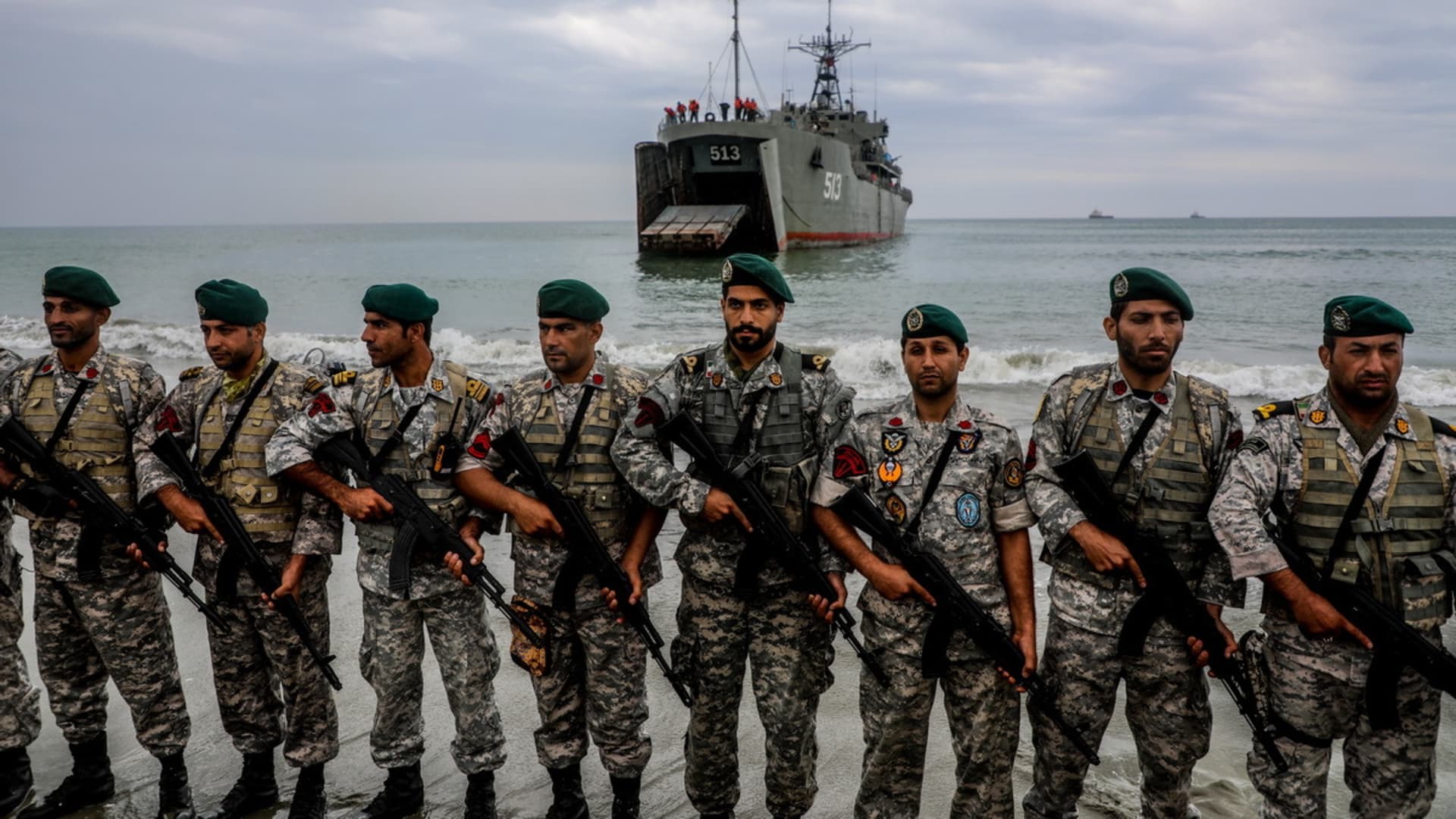The situation is very tense, according to Jakob Larsen, chief safety & security officer at the Baltic and International Maritime Council, one of the largest international shipping associations, and he said BIMCO is receiving reports that more shipowners are exercising extra caution and are opting to stay away from the Red Sea and the Persian Gulf.
And those tensions are only growing, with Iran launching missiles toward Israel late Friday local time and with it not participating in the sixth round of nuclear negotiations with the United States scheduled for this weekend.
The Strait of Hormuz, which is 35 to 60 miles (55 to 95 kilometers) wide, and connects the Persian Gulf and the Arabian Sea sees roughly 20 million barrels per day of oil and oil products pass through, accounting for nearly one-fifth of global oil shipments.
There are reasons Iran may not close the strait, which has handled 34% of all seaborne-traded oil so far this year, according to a post from MarineTraffic. The strait last effectively closed during the Iran-Iraq “Tanker War” in 1984, and remains a critical transit point for global oil and gas shipments, which led to a surge in the price of crude on Friday.
But the Strait of Hormuz is also key for global container trade. The ports in this region (Jebel Ali and Khor Fakkan) are transshipment hubs. The majority of cargo volumes from these ports are destined for Dubai, which has become a hub for the movement of freight with feeder services in the Persian Gulf, South Asia, and East Africa.
In a threat circular, British maritime security firm Ambrey advised companies and vessels to prepare rerouting of high-risk transits following military strikes. “In the event of escalation, merchant vessels are advised to reconsider transiting through the Strait of Hormuz and close to Iranian waters, as well as to seek drifting locations close to friendly and protected territorial waters,” Ambrey wrote.
It also recommended vessel owners and operators to check the affiliation of vessels as part of risk assessment to see if there is any Israel connection before their Arabian Sea, Gulf of Oman, and Persian/Arabian Gulf voyages. Vessels with affiliation or past affiliation with Israel have led to targeting of the ships in the past.
BIMCO has advised ship owners to implement ship defense measures outlined in industry documents, report suspicious sightings to the UK’s Maritime Trade Operations, reconsider current routing, and keep seafarer safety in mind, are among the recommendations it has shared with clients.
Larsen said any perception of the United States’ involvement will bring greater risks for ships, though so far the U.S. has limited its comments in relation to the strikes, with Secretary of State Marco Rubio describing Israel’s actions as “unilateral,” and saying on Thursday night “Iran should not target U.S. interests or personnel.”
The U.S. said it was helping Israel to shoot down missiles fired into Israel on Friday.
“If the United States is suddenly perceived to be involved in attacks, the risk of escalation increases significantly,” he said. “An escalation is likely to impact freedom of navigation in the Red Sea and Persian Gulf/Straits of Hormuz. Such an escalation could include missile attacks on ships or laying of sea mines in the Straits.”
The US-led Joint Maritime Information Center (JMIC) said on Friday that the Strait of Hormuz remains open and commercial traffic continues to flow uninterrupted, and added it has “no indications of an increased threat to the maritime environment.”
The JMIC is urging companies to review contingency plans for routing, crew welfare, and emergency response in the event of a significant regional escalation when transiting the Arabian Gulf, Strait of Hormuz, and Northern Arabian Sea.
Greece, which has a history of Greek-owned tankers being seized by Iran, is also warning its Greek ship owners and operators to send details of their transits through the Strait of Hormuz.
In an email to CNBC, data and analytics firm Kpler said it is keeping an eye on any vessel diversions, but it remains too early to detect any changes since Israel’s attacks.
Recent maritime safety practices in the Red Sea indicate that ship owners are wary of the region, with freight ship diversions ever since the Houthi attacks, despite the longer transit times and a 15% discount in containership fees offered by the Suez Canal to entice ocean carriers to return to previous routes. Suez Canal traffic is down 60% from pre-Houthi attack levels.
The maritime industry has been avoiding the Middle East even amid hopes of a truce and with Houthis saying they are not attacking ships, but Israel’s strikes have put those hopes of a return to normal Red Sea shipping on hold. “A large-scale return of container ships to the Red Sea seem less likely, a situation which continues to have a major impact on ocean container shipping rates 18 months after Iran-backed Houthi militia in Yemen began attacking vessels in the region,” said Peter Sand, chief shipping analyst at Xeneta.
Insurance on ships, cargo and crew is likely to be hiked by underwriters, according to Sand.
“The inevitable disruption and port congestion, as well as the potential for higher oil prices, would cause a spike in ocean freight container shipping rates, with carriers likely also pushing for a ‘security surcharge’ on these trades in the coming days,” Sand added.
















Leave a Reply